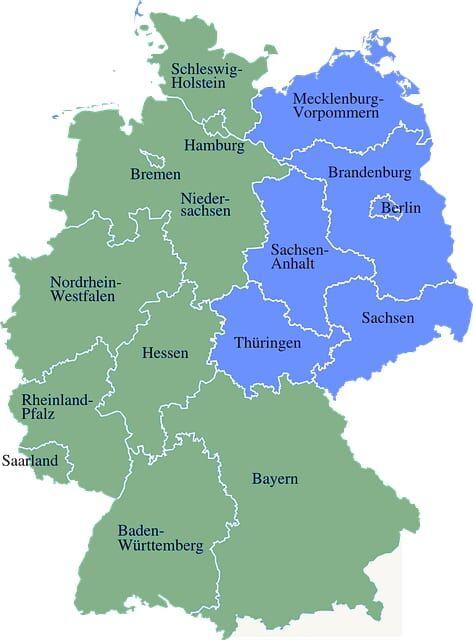Germany has officially launched a €6 billion industrial decarbonization program aimed at accelerating the country’s transition to a carbon-neutral economy, the GMK Center announced today. This ambitious initiative targets key heavy industries, including steel, cement, and chemicals, with the goal of significantly reducing greenhouse gas emissions by promoting innovative technologies and sustainable practices. As Europe’s largest economy intensifies efforts to meet its climate commitments, the new program positions Germany at the forefront of industrial climate action while seeking to safeguard jobs and competitiveness.
Germany Commits Six Billion Euros to Accelerate Industrial Decarbonization Efforts
Germany has unveiled a substantial investment of €6 billion aimed at propelling its industrial sector toward a low-carbon future. This ambitious initiative targets key industries such as steel, chemicals, and cement, which are traditionally among the highest carbon emitters. The government plans to deploy these funds over the next several years to foster the adoption of innovative technologies, improve energy efficiency, and integrate renewable energy solutions within industrial processes. By championing modernization and green innovation, Germany seeks to maintain its competitive edge while meeting its climate targets for 2030 and beyond.
Key elements of the program include:
- Research & Development: Support for breakthrough technologies such as green hydrogen and carbon capture utilization and storage (CCUS).
- Infrastructure Upgrades: Modernizing production facilities to reduce emissions and improve resource efficiency.
- Public-Private Partnerships: Encouraging collaboration between government, industry, and academia to accelerate decarbonization efforts.
Below is a breakdown of the planned funding allocation:
| Sector | Funding (€ billion) | Focus Area |
|---|---|---|
| Steel | 2.5 | Green hydrogen integration |
| Chemicals | 1.8 | Process electrification & CCUS |
| Cement | 1.2 | Energy efficiency upgrades |
| Other Industries | 0.5 | Technology innovation grants |
Key Technologies and Sectors Targeted in National Green Transition Strategy
Central to Germany’s ambitious €6 billion industrial decarbonization program is the prioritization of cutting-edge technologies designed to accelerate the shift to a climate-neutral economy. The initiative places heavy emphasis on green hydrogen production, carbon capture and storage (CCS), and the electrification of traditional manufacturing processes. These technologies are expected to drive significant emissions reductions by enabling industries to replace fossil fuels with renewable energy sources and implement more efficient production methods. In addition, advanced digital solutions, such as AI-driven energy management systems and IoT-enabled smart factories, will play a crucial role in optimizing energy consumption and resource allocation.
The sectors targeted by this strategy include Germany’s industrial backbone: steel, chemicals, cement, and automotive manufacturing. Each of these industries faces unique challenges in reducing their carbon footprint but will benefit from tailored support under the program. The government’s integrated approach also seeks to foster collaborations between small and medium-sized enterprises (SMEs) and large corporations to accelerate technology adoption. Below is a summary of the key sectors alongside their targeted decarbonization technologies:
| Sector | Primary Focus | Key Technologies |
|---|---|---|
| Steel | CO2 Reduction | Green Hydrogen, CCS |
| Chemicals | Process Electrification | Electrochemical Synthesis, Renewable Power |
| Cement | Emission Capture | Carbon Capture, Alternative Binders |
| Automotive | Electrification & Efficiency | Battery Tech, AI Energy Management |
Experts Urge Enhanced Collaboration and Innovation to Maximize Program Impact
Leading specialists emphasize that the success of Germany’s €6 billion industrial decarbonization program hinges on seamless cooperation across sectors and groundbreaking technological advancements. Stakeholders from government bodies, private industry, and research institutions are urged to establish dynamic partnerships that foster knowledge exchange and accelerate innovation cycles. Such collaboration is envisioned to not only enhance the efficiency of emission reduction technologies but also to create scalable solutions adaptable to diverse industrial frameworks.
Key strategies identified by experts include:
- Cross-sector innovation hubs to facilitate joint development projects and pilot programs
- Streamlined regulatory frameworks aimed at reducing administrative barriers for technology deployment
- Investment in digital tools to improve monitoring, reporting, and optimization of decarbonization efforts
| Collaboration Aspect | Expected Impact |
|---|---|
| Joint R&D Ventures | Accelerated tech breakthroughs |
| Public-Private Partnerships | Increased funding and resource allocation |
| Integrated Data Platforms | Real-time performance insights |
Final Thoughts
Germany’s €6 billion industrial decarbonization program marks a significant step toward reducing the country’s carbon footprint and advancing its commitment to climate goals. As industries across the nation prepare to adopt cleaner technologies and sustainable practices, the initiative is expected to drive innovation, create jobs, and position Germany as a leader in green industrial transformation. The coming years will reveal how effectively the program catalyzes change within one of Europe’s largest economies, setting a critical example for global efforts to combat climate change.




